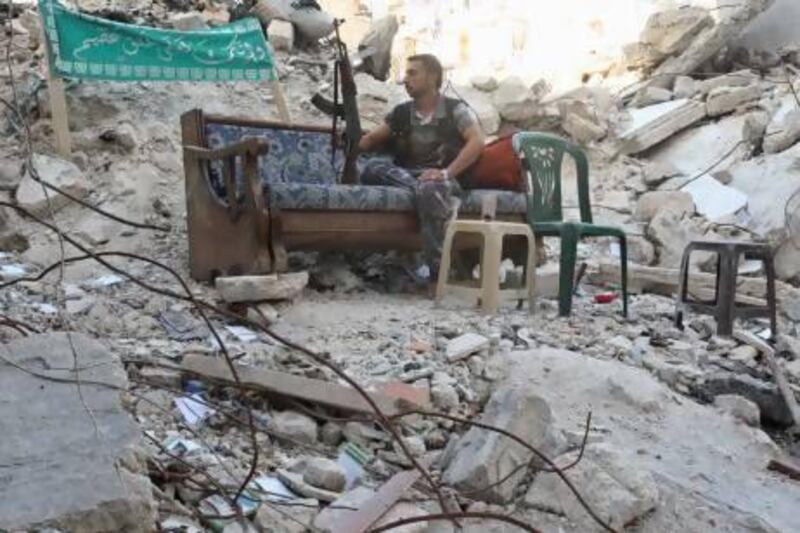BEIRUT // Syrian government troops launched an assault yesterday to regain control of a northern village that was the site of an alleged chemical weapons attack this year, activists said.
The push on Khan Al Assal, a village on the southwestern outskirts of the embattled city of Aleppo, came more than a week after it was captured by rebels.
The success was a rare battlefield gain for the rebels as opposition forces recently suffered two major setbacks during a wide-ranging government offensive in central Syria. This week government troops took control of a district in the city of Homs, the opposition stronghold since the beginning of the conflict.
Khan Al Assal was the scene of a purported chemical attack on March 19 that killed at least 30 people. Mr Al Assad's regime and the rebels have blamed each other for that attack.
Last week, the government said it agreed with a United Nations team on a possible investigation into chemical attacks - the first time UN weapons experts had visited Damascus since allegations emerged.
Earlier this month, the UN said it had received 13 reports of alleged chemical weapons use in Syria.
Also yesterday, a senior official said Syria's official opposition planned to set up an interim government this month to run areas under rebel control. "There is a plan to form a government in exile 10 days after Eid," said Omar Kouch, a senior leader of the Syrian National Coalition (SNC).
More than 100,000 people have been killed in Syria's civil war and a proposed peace conference, proposed in May by the United States and Russia, shows no sign of materialising.
The conference was meant to establish a provisional government of national unity, including figures from the opposition and the current authorities, and to pave the way for elections.
But plans to hold it unravelled after momentum on the battlefield swung in favour of Mr Al Assad.
During a visit to Doha yesterday, the SNC leader, Ahmed Al Jarba, was quoted by the Qatari news agency QNA as saying the coalition realised that a solution to the civil war would require negotiation with the authorities.
But he wanted to see changes on the ground in favour of the rebels before any talks could start.
"Now, we will not go to any talks until the Free Syrian Army and the other revolutionary forces are strong on the ground and coherent, as they were eight months ago," Mr Jarba said.
* Reuters and Associated Press





